Douglas Cootey's Blog
November 11, 2022
How to Take Charge of Your ADHD Voicemail Hell
Ever find yourself missing important messages because your voicemail box is filled with half a decade of unlistened to calls? There might be a solution for that.

Adult ADHD is almost like the Baskin Robbins of the mental health community. There are so many flavors of ADHD, you can be forgiven for questioning if they’re all from the same diagnosis. Some adults with ADHD daydream. Others are chronically late. Some run their mouths off with their feet in the way. Others never stop talking. Some forget why they went to the store. Others forget who they just called because something distracted them after they dialed. There are plenty of attributes that we all have in common, but I am constantly surprised by how diverse the ADHD community is. One size truly does not fit all.
I find that I have difficulty getting organized, I have chronic procrastination issues, I have trouble following through, and all because I have an intolerance for boredom. Those are fairly basic ADHD attributes, but where I notice them intersecting with uncomfortable intensity is with tasks like email, paper piles, bills, and voice mail.
In short, I have an aversion to drudgery. Most people do. The ADHD mind, however, seems Teflon coated to protect itself from boredom. The second boredom occurs, the ADHD mind is off crossing the English Channel, launching into space, or thinking about anything but what it is supposed to be.
I’ve noticed that Adults with ADHD have a tendency to create these types of backlogs at a higher frequency than others. They can become stumbling blocks that worsen over time because the ADHD mind recoils at boredom. Today I want to touch upon how that creates our own version of voice mail hell.
For all the creative energy I put into my voicemail greeting, I sure don’t put as much energy into listening to the messages people leave for me. Somehow, it slips my mind. People reach out to me, the years pass, glaciers move across the continent, and suddenly I notice I have voicemails all the way back to 1995. Most are just doctor offices letting me know about an upcoming appointment, but some are important messages with information I had inquired about. Other times, I found messages from my lovely daughters that were never listened to. I might be only slightly exaggerating, but overall it can get bad.
There are primarily four methods to manage voicemail:
Shut off voicemail. I don’t recommend this one, but there is no law that says you need voicemail. The best mess is the one that doesn’t exist, right⸮Keep on top of your messages daily by deleting most of them. Build a habit of triaging your messages. I will chuck the dull reminder messages first, as well as the followup messages from school or the doctor’s office. Don’t be afraid to delete a message halfway through your first listen. Work fast and get the drudgery over with. Family messages I save if they’re personal and heartwarming. That leaves me with the messages that are time sensitive. I return those calls, then delete the voicemail when I’m done.Prune your messages a little bit every day. Sometimes life will get in the way of your efficiency. At those times, it is easy to fall behind your voicemail. I get sick a lot, so there are many occasions where I begin to feel buried by the backlog. To get back on top, I’ll set the goal to process five voicemail a day using the criteria above. It doesn’t take long, and very quickly I’ll find myself caught up. I also make it a point to prioritize current voicemail first.Declare Voicemail Bankruptcy. Sadly, I find this is a necessary step every few years. For example, coming out of COVID and six months of respiratory viruses, I found my voicemail backlog almost too much to process. Pruning old voicemail everyday was exhausting me and leaving me with no energy for the important calls. A year later, and I still hadn’t caught up. Frankly, if you’re still holding onto a message from three years ago, it’s likely not relevant anymore. Do what I did. Select them all and flush them down the binary toilet. Now I am able to stay on top of my voicemail and respond to current issues in a timely manner again.If you are the type of person to create a voicemail backlog, then dutifully slog through it for an eternity, you might need permission to free yourself from your self-imposed shackles. Old voicemail is no longer relevant; time is precious; and unfinished projects have an emotional weight that can bind you in the past. Choose the most prudent solution above for your circumstances and make your voicemail useful again.
~Dˢ
November 3, 2022
Depression: The Highway to Success Has an Awful Lot of Detours
I’ll write a bit vaguely today because I want to touch upon some things that are family matters and how they impact me.
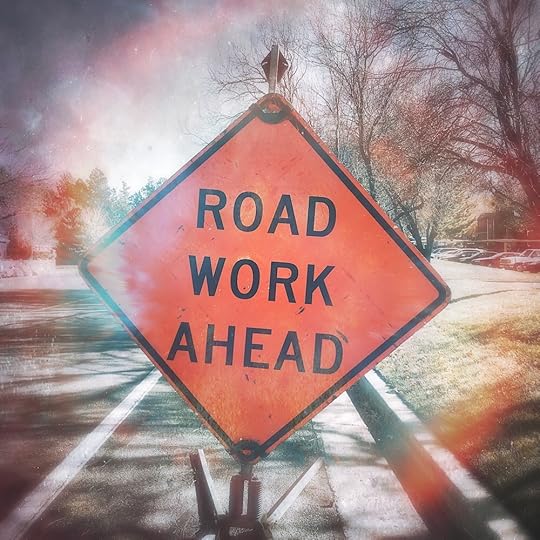
Recently, I have noticed longtime readers of my blog have leapfrogged over me while my life has become stagnant. I caught myself beginning to feel bitter about it, so instead of letting that bitterness settle into depression, I will share some things that I have learned instead.
My life took a detour a few years back, if eleven can be called of few. It was as if I was forced to take an exit and found myself on the service road bumping along besides the highway, falling behind all the other traffic. I could see where I wanted to go, but I just couldn’t get there as fast.
I called that detour “divorce”, and it took me a few years to get back up onto the highway. I finished two books and blogged professionally during that productive time. Managing my depression while optimistically making big goals helped me to move forward.
The next detour is a touchy one. I’ve never spoken about it in public. It involved pummelings and kicks, objects thrown, property damaged, bruises, and frequent calls to the police while I lived as a punching bag for two people. One of them was a sole instance, but it was bad enough that it changed their life permanently with police, counseling, and a new residence. The other person is precious to me and under my care still.
I couldn’t defend myself well in that sole instance because I was having a Tourette’s episode. My forearm crutches were up against the house, and I was laying down on the driveway. I’ve never felt so helpless in my life. The majority of the events, however, involved the precious one. How could I defend myself against a child? I would take punches while I waited for the police to arrive. This precious one also had epilepsy, so there were many, many emergency calls. I called this detour “911 Hell” and it lasted over seven years.
Autistic children are hard to raise, more so when you don’t have a diagnosis. Teachers and social workers were quick to point fault at us as being negligent. The problem was compounded because the precious one would become Dr. Jekyll after I called the police on Mr. Hyde. Fortunately, we persevered and had our child properly diagnosed, which opened up avenues of treatment that have been life-changing for all of us.
The lessons that I learned were to ignore the petty tyrants in the school system, to not take social workers’ advice (they hastily pass judgement, then move on to the next case), and to proactively seek medical expertise. Also, have your doctor print out and sign your child’s diagnosis on paper with an official letterhead, then laminate it to show to any doubting officials. This saves so much time.
My third detour was less of a side road and more of a bridge that was blown out while I was driving across it. Having Major Depression Disorder and Persistent Depression Disorder, Tourettes, and ADHD while dealing with all of this suppressed my immunity system and caused me to become sick all of the time. I call this detour “the lingering death”. It began in 2014. The last year has been the worst, and I have detailed it more than enough in these pages. I’m still trying to get back up onto the service road, never mind the highway.
All of these detours have profoundly changed me. I struggle to find things to laugh about, and I smile even less. Tapping into my inner brat in order to write funny blog articles is particularly challenging. However, I have not given up hope. Although I occasionally lapse in judgment, I try hard not to compare myself to others and mark my success against my own progress.
As for today, the precious one has COVID–19 this week, but I dodged that bullet. However, I got some other respiratory virus at the same time. You might think those are uncanny odds, but this is me we’re talking about. I get sick just looking outside at the changing weather.
As I come out of this recent illness, I’m thinking hard about how I want to move forward. I need more progress in my life. I need more successes. And I need to acknowledge that I am not managing my depression very well this time around. I don’t know if writing all of this changes anything, but it seems to me that I need to get back up onto the highway sooner rather than later before the next detour presents itself. If putting my life into perspective in a short article can accomplish anything, I hope it accomplishes this.
~Dˢ
October 15, 2022
Ten Ways to Be Happy with Post-COVID Syndrome (Even If You're Miserable)
Let’s celebrate my one year anniversary since getting COVID–19! 🎉

I know people who felt that COVID was a pernicious plot by politicians to put down the populace. I know others who believed that nobody would ever get the virus if they were vaccinated, and anybody not getting vaccinated was trying to kill them. Because of this polarization, I have a hard time talking to people about my experience with Long COVID, or Post-COVID Syndrome as I prefer to call it.
Although I have found sympathetic ears out there, they aren’t the norm. The anti-vaccine folks look down on me for masking up and getting vaccinated, or they shun me for admitting that COVID–19 was far worse than a mild cold. If I acknowledge the dangers of COVID–19 in anyway, I’m a compliant sheep to them. On the other side, the pro-vaccine cheer team pretentiously lecture me on the importance of being vaccinated when I tell them I got COVID. I suppose their reasoning is that I couldn’t have got COVID if I had been vaccinated—even though I was fully vaccinated. Since WHO considers 50% to be high efficacy¹, we know that means around 50% of the test subjects got COVID despite the vaccine. At any rate, I’ve dealt with far more compassionate pitbulls out there. It’s as if the pandemic stripped my neighbors and associates of all their long-trained humanity. Life has become Twitter.
Unfortunately, I got the virus a year ago despite living like a cross between a hermit crab and The Boy in the Plastic Bubble. Twenty-two months of avoiding every germ on the planet, and COVID slipped in through the backdoor with the family member of a roommate. It knocked me down hard, and months later I found myself sicker than usual with lots of questions. Why can’t I stay healthy? What happened to my vision? Why is it so hard to think? Why is it excruciatingly painful to give blood now? Why do my wounds take so long to heal? Why do I bruise easily? Why am I so tired all the time? Where did all my stamina go?
Why have I suddenly become so boring‽
Post-COVID Syndrome isn’t just a matter of taking a while to get over COVID. It’s a cornucopia of side effects and symptoms that linger afterwards for months or, in my case, over a year. I have to admit that I’m having a very difficult time adjusting. Last August, I passed out asleep on my bed after blogging. Blogging! I used to bang out a blog in under an hour. Now it takes me four of them. This is due to post exertion malaise, a common side effect of Post-COVID Syndrome, and one that is common to most viral fatigue syndromes.
If all of this sounds discouraging, it is. So I’ve decided to look at the upsides of this delightful virus instead of whinging about it. Since my blog is about overcoming disabilities with attitude and humor, I’m sure this will be easy:
Who needs outdoor exercise when you can get a workout walking to the fridge? Buckets of sweat, a racing heart…it’s almost like running a marathon.The increase in crippling depression has been a great opportunity to stress test my [coping strategies][fightingdepression]. Just what I needed.Think of all the TV I get to watch while stuck on the couch. I can’t remember any of it due to the brain fog, but that just means I get to watch it again for the first time!Speaking of brain fog, I now find myself pining for dealing with just ADHD. At least with ADHD, I got a lot of things done. None of them were on my ToDo list, but I sure was productive comparatively.Another upside to brain fog is that sometimes I forget that I am depressed. Isn’t that convenient‽ It’s true I also forget to pay my bills, forget which day of the week it is, repeat myself in conversations, and sometimes I forget which day of the week it is, but let’s not focus on the negatives.I have a keen appreciation of my own mortality now. Before I would cluelessly blunder through life, eternally youthful in mind, but now I am old before my time. I’m positive that sagacity is around the corner.Thanks to Post-COVID Syndrome, my eyeglasses prescription no longer works. I’ve been limping by in the dark, so to speak, but others with my same condition have had entertaining repeat visits to the optometrist as their vision changes every few months. That’s so awesome. I love optometrists!I banged my shin at Thanksgiving a month after getting COVID. Here we are a year later, and it still hasn’t completely healed. It’s perfect for Halloween!I went out to dinner with a friend the other night and came home with a cold. That’s faster than any bout of sickness I ever had before COVID. It’s as if Long COVID has weaponized my immunity system to fail. So exciting!And the best upside to Post-COVID Syndrome is that when I cancel any one of my dozens of doctor appointments because post exertion malaise or illness has me down for the count, nobody shames me. Thanks, COVID!As you can see, I can easily come up with reasons to be extremely grateful for this new condition. It’s just non-stop fun over here. So don’t feel sorry for me or worry needlessly. I’m A-OK! I may be sick in bed again, but my brain is feverishly working on even more upsides to Post-COVID Syndrome to share with you next time. Or maybe I just have a fever. With brain fog, I can never remember fully. But that’s no reason to get down, right⸮
~Dˢ
Some 50% facts you should be aware of. https://www.who.int/news-room/feature-stories/detail/vaccine-efficacy-effectiveness-and-protection
October 6, 2022
ADHD: It's Not Always Your Fault
Come explore with me the strange intersection of pants and ADHD.
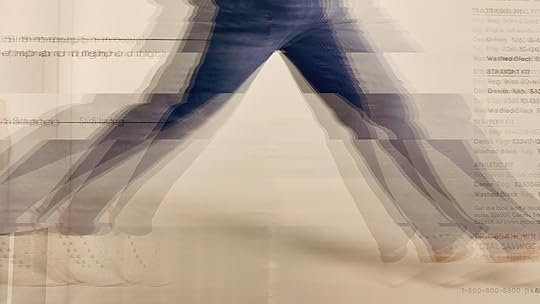
Last July, I lost three pairs of pants.
As usual, I posted to social media to make light of it, but just between you and me, I stayed up fairly late searching the house like a ninja in search of those pants. Hiding my presence, I moved into almost every room in my home, making no sound as I lifted things, rearranged them, and rifled through them hoping those pants would turn up.
I didn’t search the fridge—because that would have been silly—but I searched everywhere else except my roommates’ rooms. It was possible that somebody absconded with my pants, but it was more likely I put them somewhere stupid, right? Besides, I could just imagine the conversation when I accidentally woke my roommates up as I searched under their pillows and bedsheets.
“Douglas, why are you dressed like a ninja?”
“Go back to sleep. You’re dreaming,” I’d say while making ninja-like hypnosis motions with my hands.
“I’m calling the police.”
It turns out that one of the roommates did indeed make off with my pants. This could have been scandalous, except that they politely returned them in the morning—folded—and apologized for accidentally forcing me to run around half naked for…well, no time at all. I eventually stopped looking for my pants, put on my PJs, went to bed, then woke up and got my pants. As far as scandals go, this one was fairly benign.
Except for the hours I spent blaming myself for something that I didn’t do while searching in every stupid place I could have possibly stashed pants.
Afterwards, I was a tad disappointed in myself that when three pairs of pants magically disappeared out of the dryer, I believed that I must have been responsible. I knew, logically, that somebody had taken them—probably accidentally—but I couldn’t believe it. I misplace things so many times on a regular basis, I just assumed that I had done it again. As Ned Hallowell wrote about in “ADHD and Shame”, ADHD adults …may feel that the real you is fundamentally flawed.
I have a brain and have even been known to put it to use occasionally. That means that I know when I’ve messed up and when I haven’t. This incident caught me off guard. Hadn’t I already changed this part of myself? I thought I liked myself better than this! I still don’t? What’s up with that?
I have seen two major ways that Adults with ADHD handle a lifetime of making stupid mistakes and being blamed for not measuring up. The first group internalizes the blame and even perpetuates it, holding themselves responsible for every perceived failure. The second group won’t allow blame to chain them down, so they sprint forward, but without much self-analysis. Both groups tend to become overachievers.
I used to fall into the first group. It was exhausting to constantly be my own worst critic, so I made large strides in putting that type of toxic thinking behind me. So what happened last July? If I were able to skip back through time in order to give myself some advice, I’d tell yester-me to trust his instincts and go to bed. Since I am not able to do that, I will inform future me to keep this lesson in mind.
Pants, even the most active kind, don’t leap out of the dryer and go for a walk. And since there is only ten feet between the dryer and my bedroom door, there aren’t an awful lot of places to misplace pants. I was so troubled by that incident, and so disappointed in myself that I had assumed fault where there was none, that I began to reassess my state of mind. That incident prompted me to seek more information about “Long COVID”.
In a way, I have those pants to thank for my new awareness. I’ve been blaming myself for an awful lot of issues that were out of my control this year. If I hadn’t blamed myself for something ludicrous last July, then been surprised at my error of thought, I might not have suddenly come to a stop and said to myself, “Hold on. Something is wrong here, and it’s not ADHD.” Brain fog is one of the major symptoms of “Long COVID”, but it’s also like a bad ADHD day every day.
I have to admit that I am glad that ADHD has taught me not to take life so seriously. I had a good laugh about those wandering pants. We and our ADHD aren’t always at fault.
The scars of our youth happened a long time ago. We should leave the wounds in the past and stop carrying them into the future. Whether we needlessly blame ourselves, or careen through life like a locomotive in an effort to avoid blame, we still carry those criticisms around with us.
Maybe there are people in your life who still relentlessly blame you. I won’t go so far as to tell you to cut them out of your life, but learning to push back at least can be part of nurturing your self-esteem. You don’t have to be angry, outraged, or hostile. Just draw a line in the sand and don’t budge. That includes pushing back against yourself. Don’t beat yourself up when you make a mistake. Learn from it instead. Laugh at it. Take away its destructive power. You can stop yourself from assassinating your own self-esteem like a ninja in the night. Not everything is your fault.
Now that I think about it clearly, though, I lost my favorite jackknife that month, too. You don’t suppose my roommates would mind if I blame them for its loss, do you? It couldn’t possibly have been me at fault.
September 24, 2022
Five Ways To Stop Shiny Object Syndrome
Long before “Shiny Object Syndrome” was coined as a term, an insignificant blogger from Utah referred to a similar condition and called it Multi-Irons Syndrome. Are they the same thing?
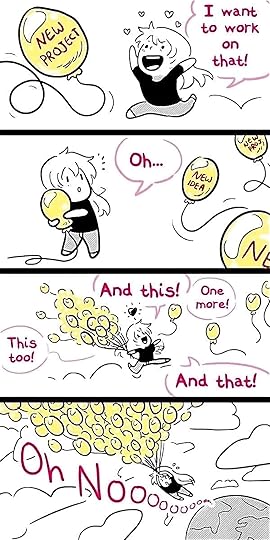 Shiny Object Syndrome — The Fancy Term for Something You’ve Been Doing All Your Life
Shiny Object Syndrome — The Fancy Term for Something You’ve Been Doing All Your Life There is often a difference between what an expression means when it is coined and how people end up using it. People often don’t see eye to eye on these things. One group will insist on the academic or dictionary usage of a term or word, while the popular usage tromples all over them. Irregardless, we don’t have a lot of control over language. (Yes, yes, I couldn’t resist.) Language evolves. Take a stand on one meaning, and you’ll soon find yourself in the camp of people who hate the use of the singular “they”, shaking your aging fist at the sky, shouting, “But that’s not what the word means!” We lost that particular battle years ago when people got tired of typing “he or she” and “him or her” as gender neutral expressions in business letters.
Shiny Object Syndrome is another one of those terms. People don’t exactly agree on what it means, and they don’t all use the same expression, though it is clear which one is winning that particular battle. The original meaning of “Shiny Object Syndrome” has more to do with project creep than distractions, but that’s not how it is used. Just look at that wonderful cartoon. It was labeled ShinyProjectSyndrom_e1556842006339.jpg on the oldest link I found, like that helps. Syndrome isn’t even spelled correctly.
I have no idea who drew it originally, but they captured the manic zeal of the syndrome perfectly. I have referred to the same issue since 2008 as “Multi-Irons Syndrome”. My term has more in common with the less popular “Shiny Project Syndrome”, but “Shiny Object Syndrome” has the clout and its own Wikipedia entry.
Shiny Object Syndrome as a Way of LifeRecently, I embraced Shiny Object Syndrome as a coping strategy to deal with the crushing depression I was suffering from during the pandemic, and then after coming down with COVID–19. Laying in bed and staring at the ceiling for entertainment gets boring in a hurry. Letting myself get excited about new projects was the only thing at times that lifted my spirits.
I don’t regret the coping strategy, because it was so helpful initially. I’ve written about having too many irons in the fire before, but I ended up with a bit too many projects this time. To manage things, I’m journaling my process as I take this massive new pile of nascent projects and prune them before I fail to achieve my birthday goals. I call it my Bookwork project.
Adults with ADHD are particularly susceptible to Shiny Object Syndrome. Every task worth the effort involves a bit of drudgery before great things can be accomplished. Unfortunately, our Teflon coated brains are averse to the boredom that drudgery welcomes in with open arms. Our minds switch tasks to something more appealing so quickly, we often are not aware of the change. Then we end up with something like my Bookwork project where I wanted to write fifteen books simultaneously. FIFTEEN! As soon as I realized what I had committed myself to, I had a good laugh.
Simple Steps to Prevent Shiny Object Syndrome from Taking Over Your LifeIf you’ve got ADHD, it isn’t likely that you’ll be able to kick this habit. An aversion to boredom is built into the diagnosis. However, you can manage it. Here’s how I halt the parade of ideas and finish the floats I began with:
Keep the most important goals in the forefront of your mind. Plaster them on the wall if you have to.Periodically reassess your project goals to cut out the cruft.Don’t be afraid to shelf “cool” ideas if they are getting in the way of what you’re supposed to accomplish.Work on your projects in short steps to avoid deep boredom.Build in rewards for staying focused.Whatever you want to call it, people with ADHD collect new projects without even trying. I don’t think this is a bad thing. Our minds are unfettered and freely creative. Good things can come from that chaotic maelstrom of thoughts. The trick is to regulate it so that we aren’t always creating and accumulating ideas, but taking time to bring some of them to life.
September 19, 2022
Experiment with Your Coping Strategies for Better Results

Earlier this year, I admitted to myself that my current coping strategies weren’t fighting off my depression as effectively as they were before. Had they simply stopped working, or had something fundamental changed inside of me? The answer was complicated.
Obviously, my coping strategies weren’t working since I spent more than half of the days each week struggling to keep my spirits up, but for the longest time, I was too sick to do anything about it. I just limped along waiting to get better. The problem with that plan was that I wasn’t getting better. My depression was fueled by chronic illness. Waiting to get better to act was like waiting to see a doctor about a broken leg after it heals.
My [coping strategies for depression][fightingdepression] were based on basic cognitive behavior therapy principles: Identify the trigger. Implement a solution. Experience relief. They were also based on the belief that I could regulate my moods. They worked great for years until I came upon a new vector into depression.
The pandemic, and then experiencing COVID–19 personally, showed me that my coping strategies didn’t compensate for long term discouragement. It’s hard to feel positive and upbeat when you’re sick everyday. It’s hard to go out for a walk when you have a respiratory virus during a snowstorm. It’s hard to change the scenery when you are quarantined.
A curious thing happened to me, however. Although there were more than a few days where it could be said that I wallowed in misery, and although I muttered and complained about my lot in life more than I am comfortable to admit, I didn’t stop being me. My need to solve my mental health issues didn’t park itself in the shed and gather dust, leaves, and cobwebs throughout the Winter. After some time, I realized that I needed to change my approach. I chatted with others more, I began new projects while quarantined, I started exercising daily in very minute amounts, and I stopped feeling guilty about being sick.
I kept trying to move forward with as much vigor as I could summon. As the expression goes, I threw whatever I could at the wall over and over again to see what would stick. I found quite a few projects that stuck. In fact, I ended up with a fairly bad case of Multi-Irons Syndrome, as I like to call it. Although I now have to go through the tedious process of pruning all these conflicting projects (I don’t have time to do them all), I am so very glad that I am recovering to the point that I can start pruning. I’m even grateful.
We all deal with depression in our own way. Some seek therapy, some seek meds, and some seek both. I won’t tell you which method is the best one for you. Only you can determine that. One size does not fit all.. As for me, I began to almost desperately reach out to any project or idea that caught my fancy. Making plans and projects is an act of hope. I am relieved that even at my bleakest, I was still counting on getting through the hardships to bring new ideas to life. Now I’ve been to a Post COVID clinic and have a healthcare ToDo list that exhausts me to just think about, but I am hopeful again, which is a nice change.
But where does that leave you? If you are struggling to manage your depression due to the pandemic or, like me, if you are dealing with Post-COVID (Long COVID), you may find yourself suddenly turned into a glass-half-empty type of person, especially if that glass was formerly filled with health and stamina. Chronic fatigue can sap you of cheer just as much as it does energy.

My advice is to not give up. Turn to your coping strategies and start adapting them to your new circumstances. Get wild. Keep trying. In my case, I forgot which aspect of depression my coping strategies were addressing. When I decided to fight back, even if each and every new coping strategy ended in failure, the act of trying was an act of hope. You need to exercise hope like a weak muscle—carefully at first, but then with greater and greater gusto. You are your own best advocate, so keep advocating with yourself for yourself. Find reasons to keep looking forward despite all the setbacks.
When your coping strategies fail you, it is important to rethink them. Eventually, you will find a remedy that is perfect for your situation. The alternative to is fossilize and mope, perpetuating your pain. Let’s all keep pushing forward instead.
~Dˢ
September 8, 2022
ADHD: Brain Fog Is No Laughing Matter. Well, Maybe Just a Little
Call it brain fog, absentmindedness, or a senior moment, but sometimes when your ADHD brain goes on the fritz, you’ve just got to laugh.
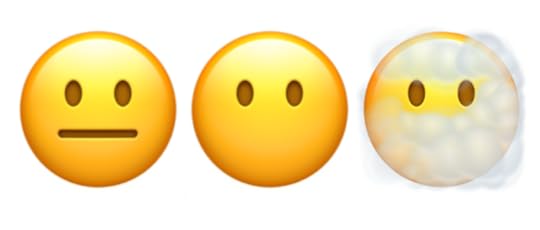
I am here today to tell you that playing Sudoku daily will not improve brain fog. I know. I’ve tried multiple Sudoku books & apps, Sudoku with words, and there’s a Sudoku game out there for the Nintendo Switch that would let me play with fluffy blobs of cats, but I’m not entirely convinced that will work either. Adults with ADHD deal with brain fog on a general basis, so over the years I figured doing mental activities to improve my concentration and presence of mind couldn’t hurt.
Who says that Sudoku improves concentration? The same people who used to swear by crossword puzzles, usually. Certainly, not me. No, I kid. I love playing Sudoku and feel more focused after solving a few puzzles, but after the week I’ve just had, I can tell you that it’s clearly not working as a prevention.
There was that moment where I was distracted cleaning up my Nintendo Friend List. Who were all these people? Clearly, all that meditation I had been doing under mountain waterfalls had failed to sharpen my wits. There was this one entry labeled “April” with a bulbous Kirby as her avatar. Hey! I know an April! But is it the same April? Moments before bringing an impulse to life via text, I stopped myself, iPhone in hand, and thought hard for the first time in days. You can’t just ask somebody out of the blue if their gaming avatar is Kirby, Douglas. Does she even game? Waitaminute…how long has it been since you reached out to her anyway? Crud! Has it been months‽
In fact, it had been so long since I last texted her that the conversation had been automatically deleted. For all I knew, I had left her on “Read” since last year. Suddenly, I realized again that the dream I had about forgetting that I was dating somebody wasn’t so far from reality.
Last weekend, I was talking with a friend about the latest Spider-man movie that was rereleased into theaters. He couldn’t believe that I hadn’t seen it yet. He stared at me like I had three heads. I had insisted that he watch the first two movies last Fall (that HE hadn’t seen) so that he could catch up in order to see the movie in theaters with me. Then I got sick.
Later I found out that he went and saw it with family instead while I was sick in bed. Why are we still friends? How could my friend not know how sick I’ve been? But never mind that. Why do we say “three heads”? Wouldn’t two heads be weird enough? Were two heads a normal thing ages ago, thus making three heads something outside of the norm? Perhaps there’s something more to the “two-faced” idiom. 🤔
At any rate, he was right that I was adamant about him getting caught up. I wanted the shared cinematic experience. I realize I was bedridden for much of the winter, but it’s strange that I never bought the movie, or streamed it online. It couldn’t be that I forgot about it. One of my daughters loved the movie so much, she rented out a seat and lived in the theater during its first run. It’s all she texted about for weeks.
I think this is more like that ADHD joke, “Oooh! Shiny!”, but on a larger scale. For me it’s a Tourettes episode that lasts for more than a few days or an illness that lasts for a week. I lose track of my current goal if I go too many days without working on it. I’m running forward headlong towards a goal when something happens, then POOF! What goal?
I compensate for this, usually, but having a ton of reminders and to do lists. I’m pretty good about keeping track of most of it. It’s how I’ve written two books, blogged professionally for years, and raised kids. However, every once in a while something slips through the cracks. This time it was responding to a text and seeing a movie I had planned on. The brain fog from Long COVID (or chronic fatigue syndrome—whatever they’re going to call it), only makes my ADHD absentmindedness worse. It can be frustrating. Whenever this forgetfulness interferes with my life, I try to have a good laugh, but not laugh it off. It’s important to acknowledge some of these quirks are funny. It’s better than hating myself as I used to do decades ago. However, a healthy sense of humor is the only thing that seems to be healthy about me lately.
Maybe I just need to play even more Sudoku. I’m sure that’ll fix things.
~Dˢ
August 27, 2022
ADHD Fixation: The Dark Side of Hyperfocus
A lot is made of ADHD’s super power of hyperfocus. I’ve written about it on several occasions over the years as well. I’ve even created a ToDo List technique to simulate it!
Should we really label hyperfocus as a superpower, though? I have always been painfully aware of the downsides to hyperfocus. I’ll even avoid undertaking certain tasks because I know that I’ll slip into hyperfocus and loose track of time and the events around me. It’s not always a desirable state of mind to be in.
Normally, adults with adhd might as well be hamsters on a wheel, furiously running, but not getting anywhere. Suddenly, hyperfocus grants us clarity of vision and purpose, opening the road in front of us into a straight line towards success. When your days are spent fighting against your own brain to get something done, hyperfocus is a big deal.
So, what’s so bad about hyperfocus?Hyperfocus without limits is a form of tunnel vision. I like to say that character flaws are talents gone awry. If hyperfocus is a talent, then its flipside is fixation. This ADHD fixation occurs when hyperfocus has no endgame. There is only the project and the drive to complete the project. Everything else is ignored while we relentlessly pursue our goal.
“But Douglas!” I hear you say. “Isn’t focusing on completing the project an endgame?”
It seems that way, doesn’t it? Hyperfocus is wonderful when the project moves smoothly from start to finish without inconveniencing anybody. What happens if hyperfocus makes you difficult to work with, though? What happens when you encounter a hitch? Do you step back and rethink your approach to the project, or do you run forward in hyperfocused hamster mode, furiously running in circles, but with greater energy?
I recall a time when a college friend and I were working on an import Japanese goods startup business. We ran into software issues which affected the catalog layout. Instead of stepping away to research the issue, I continued struggling against the software for hours while my friend grew more and more frustrated. I didn’t listen to a darn thing he said. He pleaded with me to find another solution, but I continued. “I’m almost done. Just one more sec.” I never did resolve the issue, so what did all that intense hyperfocus accomplish? Over the last three decades, I have trained myself to not become so fixated when other people were waiting in the wings. However, I still inconvenience myself if I don’t watch for it.
How do I stop myself from slipping into hyperfocus?Life is filled with moments where we have to park our hyperfocus in order to function with those around us. While raising children, I had to put the brakes on hyperfocus so that my children wouldn’t have to wait for me to finish a project before, oh, feeding them perhaps? Even last night, I put off writing this article until my adult autistic daughter was put to bed.
When I find myself out in the weeds filled with glorious purpose, I use these tips to drag myself back to the road:
Become aware of which activities you tend to hyperfocus on. The first step is developing an awareness of yourself. Knowing which activities catch your attention will help you avoid them when you have other responsibilities.Clear away your responsibilities before allowing yourself to sink into hyperfocus. This is a core issue that is made difficult by the very nature of ADHD itself. However, you can train yourself to do this. It takes effort, but it is achievable.Begin with the ending time in mind. This is where I trip myself up. Have a clear idea of how much time you can allow yourself to work on a project before you begin. Use physical timers and phone reminders to keep yourself on track.Stop when you should. This is the hardest skill of all when hyperfocus whips us forward in a euphoria of clarity. You don’t have to wait until you’ve made a wreckage of your life before learning this skill.Reassess your project and be flexible enough to change course if necessary. Hyperfocus will have you endlessly working the wrong approach to completion. Our first ideas aren’t always the wisest, even if they are compelling. Get it right with practice.I love hyperfocus; I despise ADHD fixation. Nothing good ever comes of being fixated. I become inflexible, obsessed, and out of touch with the world around me. Years ago, I melted more than a few pans on the stovetop before learning not to work on a project while also cooking. It is true that sometimes “brilliant” ideas are lost when I prevent myself from getting hyperfocused, but I’d rather be reactive and bored than brilliantly hyperfocused while the world burns around me.
~Dˢ
July 7, 2022
That Time ADHD Helped Me Win a Couple of Auctions
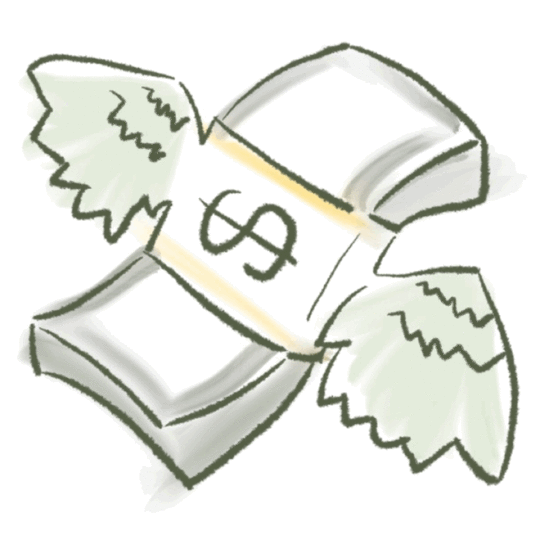
The problem with chronic illness is that it's boring. I don't mean for the person stricken in bed and suffering. Who cares about them, right⸮ I am referring to everybody else who finds the subject duller than a twenty-four hour CSPAN marathon. When the chronically sick try to tell others about their struggles, they are likely to receive no small degree of exasperation from people who can't hide their dismay, as if to say "What? This again?"
Of course, not everybody is so callous, and even if they are, they aren't likely to be so open about it. They'll smile at you, nod their head sympathetically, tell you to call them if you ever need anything, then disconnect their phone number. I am almost certain this is what really happens, or at least, I am mostly certain since my observations were possibly affected by my 102°F fever. As I've written over and over before, I contracted COVID-19 in October like an early Halloween treat, received RSV for Thankgiving, then had a string of mystery respiratory viruses all the way into April. Despite blogging about this three and a half dozen times, nobody has sent me bales of cash with a sweet "Get Well" card yet. In fact, I would have simply been happy to have received a postcard from Healthy Town, USA with the words, "Wish you were here," scrawled on the back, but no such luck.
In March, I celebrated six months of respiratory viruses by bringing another one home with me from the virus distribution center. This was a proper bookend to COVID-19, complete with five days of a 101°F fever, and it left me bedridden with nothing to do except…what was that?
"Stop being so negative, dear."
"Don't identify as your illness, my dude."
"Keep your plague to yourself."
"You were sick?"
That last one was from one of my beloved daughters, so yes, I was sick. And I had a lot of time to think about things like ADHD, Depression, the fascinating patterns in my ceiling, and how I was going to eat. I can assure you that modern amenities don't accommodate the sick in bed. You can imagine my frustration when I discovered Door Dash would not, in fact, come to my bedroom door. Never mind that I'd have to mail them my front door key first, which I couldn't do from beneath my bedsheets.
If chronic illness is boring for others on the outside, just imagine how boring it is for us on the inside. Couple that boredom with ADHD, and I can get up to dangerous mischief without leaving my bed. During my tumultuous time of illness, when I survived by eating my pillow, I would pass the days propping my iPhone on one arm while I weakly flopped the other arm in its general direction, randomly stabbing at the screen as my hand passed by it. In this way, I surfed the net and kept myself entertained. I can inform you with great authority that being sick in bed with ADHD and an iPhone is a very, very bad situation. Especially when eBay is involved.
Somehow, in my feverish state—where I enjoyed reading badly written books because I was too sick to notice—I also took time to bid on several out of print Pokémon games. I do have an interest in that game series, I must confess, and that in itself wasn't the problem. Bidding on something in order to keep an eye on the auction instead of simply adding it to my watch list was the source of my trouble. I not only won both, very expensive auctions, but I discovered to my alarm that I already owned one of them.
I had forgotten the age-old adage passed down to me by blessed family members who had learned the hard way: "Never bid on auctions when you're sick!" Or perhaps it was my own adage learned at the School of Hard Slaps. I was too feeble-minded to recall.
I recovered long enough a week later to relist the items on eBay immediately after they arrived and before my bank account began to hemorrhage from my stupidity. Both items sold quickly, and when all fees had been totaled, I was out about five bucks between the two. Disaster averted.
I've been writing about coping strategies for adults with ADHD for seventeen years now. In that time I have shared my most blockheaded moments for your entertainment, though I have not shared them all. Some ADHD mistakes are colossal in their stupidity and should be kept secret, buried in a vault, and forgotten by time. Fortunately for you, my deft auctioneering was not one of those moments. Take note and learn, my friends, which moments are the worst for your ADHD.
Illness and ADHD are a terrible combo for me. There are many things I will not allow myself to do while sick, mostly because being bored out of my mind while suffering from reduced impulse control always gets me into trouble. Perhaps that might explain why I have an old LP of Artie Shaw arriving today even though I don't have access to a record player.
Coping Strategy: Never bid on auctions when you're sick or tired while experiencing a case of chronic ADHD.
May 13, 2022
ADHD – I Forgot that I Was Dating Somebody?
Can you be so forgetful that you’d forget that you were dating somebody? For a few groggy moments, I was convinced that I had.
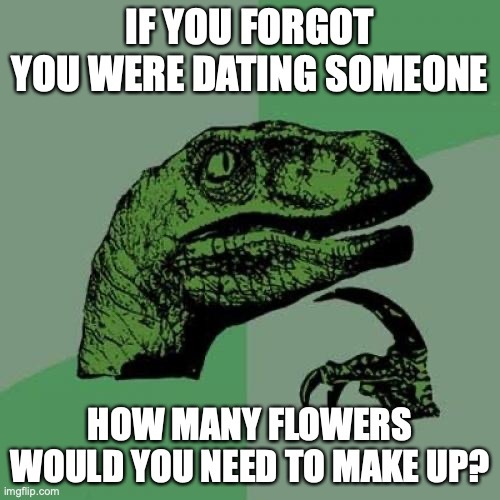
As I dealt with forgotten bills, paperwork unearthed from the Jurassic era, and various and sundry things I had meant to get to sometime around last September, I wondered if maybe, perhaps possibly, I was forgetful.
Oh, everybody forgets things! It’s perfectly normal. For example, my mother routinely forgets my name. After bringing me into this world many long and hoary decades ago, you’d think she’d have gotten the hang of it by now, but there she goes again, calling me by name by starting with the youngest son then moving upwards through the sediment of time until she comes around to me.
People with ADHD are just like that, except with trips to another room, a few phone calls, and a sudden urge to reorganize their closet in between each name. Perfectly normal! That’s why you probably won’t be surprised to hear that I’ve forgotten quite a bit over the past half year.
My Fall was more hectic than usual. I started with a car accident in August, surgery in September, COVID–19 in October, RSV in November, then an attempt to catch every virus in Utah before the merry-go-round came to a stop last month. I’m surprised I didn’t end up with Hanta Virus somehow, as well as Chicken Pox for a third time. My life was such a wreck, I was lucky I remembered my own name!
Some interruptions derail the ADHD train so completely that when we finally get our caboose back up on the tracks, we often head off in a new direction. It’s not unusual for me to suddenly realize two months after getting over a death match with the Black Plague that I accidentally started a new project instead of resuming an old one. But there go I introducing a new metaphor. You’d think I had enough archeological material to work with considering how much my bedroom resembles a dig.
Speaking of my bedroom, aside from creating geological strata in all four corners with paperwork, I have been known to sleep there on occasion. Imagine, if you will, my sleepy head emerging from the covers one shiny morning in a panic. No, I hadn’t been buried under the weight of over half a year of mail. I had dreamed that I had suddenly realized that I had a girlfriend who I hadn’t called since September. I was so alarmed in the dream that my heart began pounding as I struggled to remember her name. How could I have forgotten my darling! Then my lucid brain had a chat with my dreaming brain and came to an agreement that it was time to wake up.
As I laid there in the bed calming my racing heart, I chuckled to myself. Like I could ever forget somebody so important as a girlfriend… Then I had a real moment of panic as I realized that I forget people all the time! I forget their names, I forget to call them back, and I forget that I’m on the phone with them when I suddenly start organizing my closet. Yes, I concluded from the sagacious perch of my pillow. I could possibly forget somebody that important.
But did I? I began to worry that maybe I had broken somebody’s heart. How do you apologize for accidentally ghosting somebody for eight months? Fortunately, my lucid brain realized that I was still sleepy and the whole incident was nonsense. There was no girlfriend. I was absolutely in the clear.
Probably.
I'm still surprised that I am so used to being forgetful that I could honestly believe such a dream-addled fiction, even for a moment. To my credit, I’m not so forgetful that I would space off a relationship, but if I ever do get a girlfriend and forget her name, you’ll know I’ll be buried with the dinosaurs if I’m tempted to dig through the layers of my memory and start rattling off past girlfriends’ names until I finally arrive at the right one.



